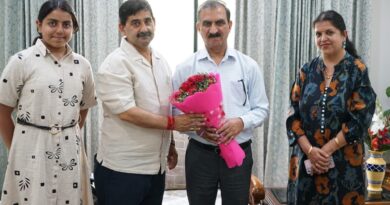Former Shimla Deputy Mayor has approached SC challenging court ordered on apple tree felling
In a heartfelt plea to protect both livelihoods and landscapes, former Shimla Deputy Mayor and CPM leader Tikender Singh Panwar has approached the Supreme Court, challenging a Himachal Pradesh High Court order that mandates the cutting of apple trees grown on encroached forest land.
Panwar, joined by advocate and activist Rajiv Rai, argues that the July 2 directive—ordering the forest department to uproot fruit-bearing trees and replace them with native forest species—was issued without a proper Environmental Impact Assessment (EIA). The petition warns that the decision not only overlooks ecological consequences but also violates constitutional principles and environmental law.
The stakes are high. Nearly 4,000 apple trees have already been felled in Shimla’s Chaithla, Kotgarh, and Rohru regions. State records suggest that up to 50,000 trees could be next. “These orchards aren’t just economic assets—they’re ecological lifelines,” the petition states, emphasizing their role in preventing soil erosion, maintaining biodiversity, and supporting local communities.
The timing of the operation has also drawn criticism. With monsoon rains triggering landslides across the region, mass tree-felling in such fragile zones could worsen the crisis. The petitioners argue that the court’s order bypasses due process and ignores judicial precedents that require environmental assessments before undertaking actions with significant ecological impact.
Panwar contends that the directive violates the right to livelihood under Article 21 of the Constitution, calling it “arbitrary and disproportionate.” He cites landmark Supreme Court judgments to support his case, including TN Godavarman Thirumulpad and Coimbatore Cooperative Bank rulings.
Instead of destruction, the petition proposes sustainable alternatives—such as acquiring orchards for public use, auctioning fruit and timber, or integrating produce into cooperative and disaster relief programs. These solutions aim to strike a balance between environmental restoration and economic survival.
As the Supreme Court prepares to hear the case, the outcome could set a precedent for how India navigates the complex intersection of conservation, community rights, and climate resilience.



